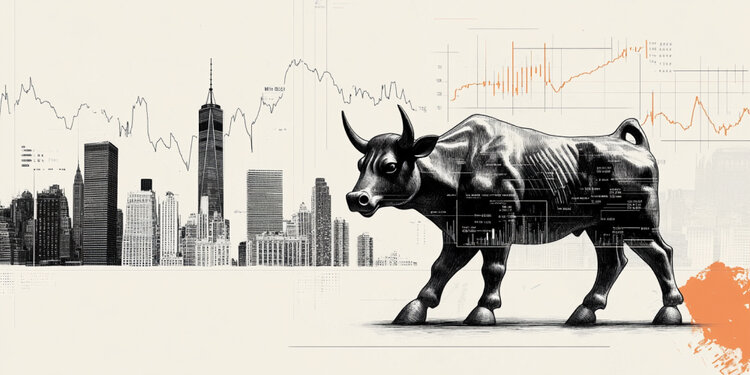The US Securities and Exchange Commission (SEC) has dropped its lawsuit against two Ripple Labs executives over the $1.3 billion sale of XRP tokens, another step in the cryptocurrency industry’s struggle with traditional regulation, writes RBC Crypto.
The SEC’s litigation with Ripple Labs has become the cornerstone of the campaign to regulate the cryptocurrency industry in the United States, and the trial itself is not over yet. The main US exchange regulator has been suing the company for several years – in December 2020, the agency accused it of selling unregistered securities worth $1.3 billion under the guise of XRP tokens.
The SEC has filed a lawsuit against Ripple Labs itself and civil lawsuits against its executives, CEO Brad Garlinghouse and co-founder Chris Larsen. The XRP token was then the third largest crypto asset by capitalization, second only to Bitcoin and Ethereum.
The regulator is trying to equate the sale of XRP tokens by Ripple Labs to transactions in unregistered securities, and two of the company’s executives, according to the original indictment, personally facilitated the sale of tokens to investors. But on October 20, the SEC announced that it had dropped the cases against Garlinghouse and Larsen.
Unequal struggle
Cryptocurrency companies in the US have a hard time complying with Wall Street rules and have largely opposed the SEC’s approach. Many of them paid large fines to settle the regulator’s claims. For example, the Kraken exchange paid a $30 million fine when the SEC equated its staking service with earnings on unregistered securities. The US subsidiary of Bittrex filed for bankruptcy after the SEC filed a lawsuit against the exchange and its co-founder. Only recently, in October, similar sanctions from the SEC forced the LBRY project to shut down completely, citing “multi-million dollar debts” due to the legal battle.
But Ripple was an exception. Garlinghouse and Larsen were betting that they could beat the government in court, and the regulator’s waiver of civil suits could give them additional motivation. The cost of paying expensive lawyers to fight government charges prompts many companies to settle, but Ripple has both the means and the incentive to fight. Garlinghouse personally earned $150 million from selling XRP tokens, while Larsen earned $450 million.
Victories in court
The issue of Ripple Labs’ liability and claims against Garlinghouse and Larsen were resolved in July when U.S. District Judge Analisa Torres partially granted the defendants’ requests to dismiss the case. Torres agreed with Ripple’s arguments that the sale of XRP tokens to retail buyers in various forms does not violate investor protection laws.
Torres also partially ruled in favor of the SEC, ruling that the $728 million in token sales did constitute an unlawful sale of securities. The judge ruled that small investors who buy XRP through exchanges are not subject to SEC oversight. But large investors who buy XRP directly from Ripple are eligible.
Ripple still faces a hearing on how much it must pay to settle the charges. However, some of the claims against Garlinghouse and Larsen were not affected by Torres’ decision and were not expected to go to trial until next year. Lawyers in comments to the media insist that the charges against both were initially brought forward without basis.
The SEC appealed the judge’s handling of the token sales, but was denied the permission needed to immediately review the decision by a higher court. Judge Torres explained the decision by saying she correctly applied the test to determine whether a cryptoasset is a security.
The SEC may file another appeal of Torres’ decision after she rules on the fines that Ripple must pay for selling XRP to institutional investors in the amount of $728 million. According to Garlinghouse, Ripple will not be required to return the entire amount, at least because that many of the token buyers are not in the United States and do not fall under the purview of the SEC.
During an interview on the Metaco Talks podcast, the head of Ripple said that he is “definitely not a maximalist” of one asset, despite the fact that he himself holds an impressive amount of XRP tokens. According to him, there is always a place in the market for Bitcoin and crypto-assets of other projects. He says he could have settled the SEC’s claims three years ago for much less money than it cost to defend Ripple. But, he said, the money was worth spending “for the sake of the industry.”
Source: Cryptocurrency
I am an experienced journalist and writer with a career in the news industry. My focus is on covering Top News stories for World Stock Market, where I provide comprehensive analysis and commentary on markets around the world. I have expertise in writing both long-form articles and shorter pieces that deliver timely, relevant updates to readers.







